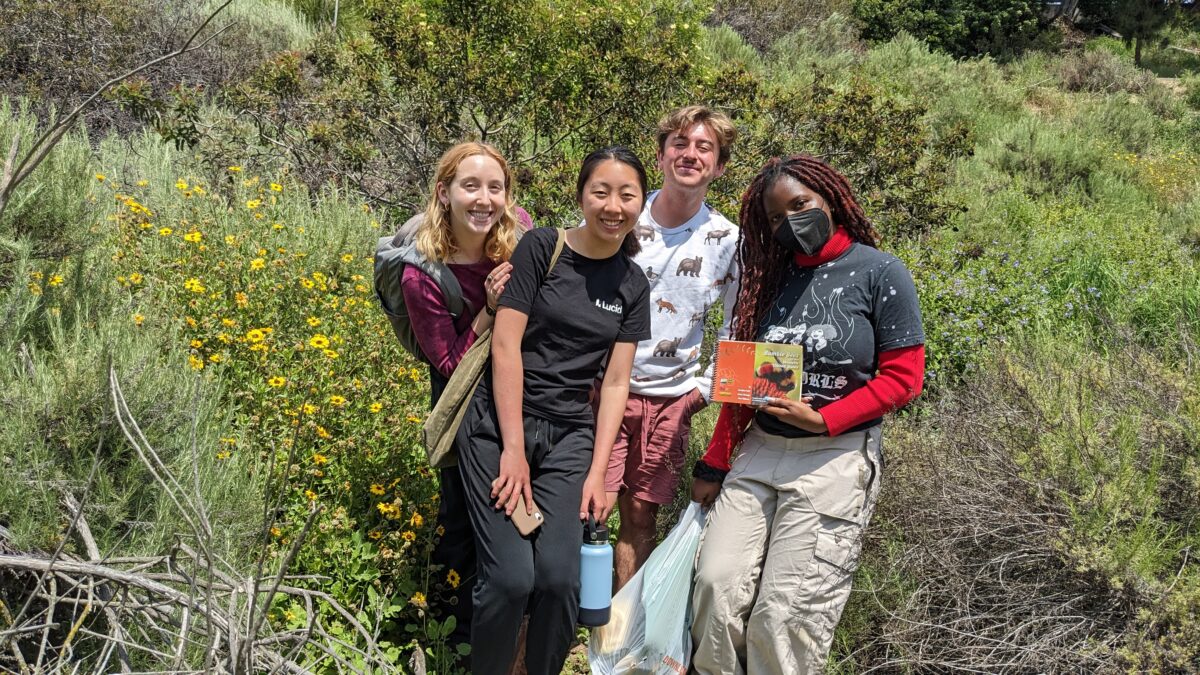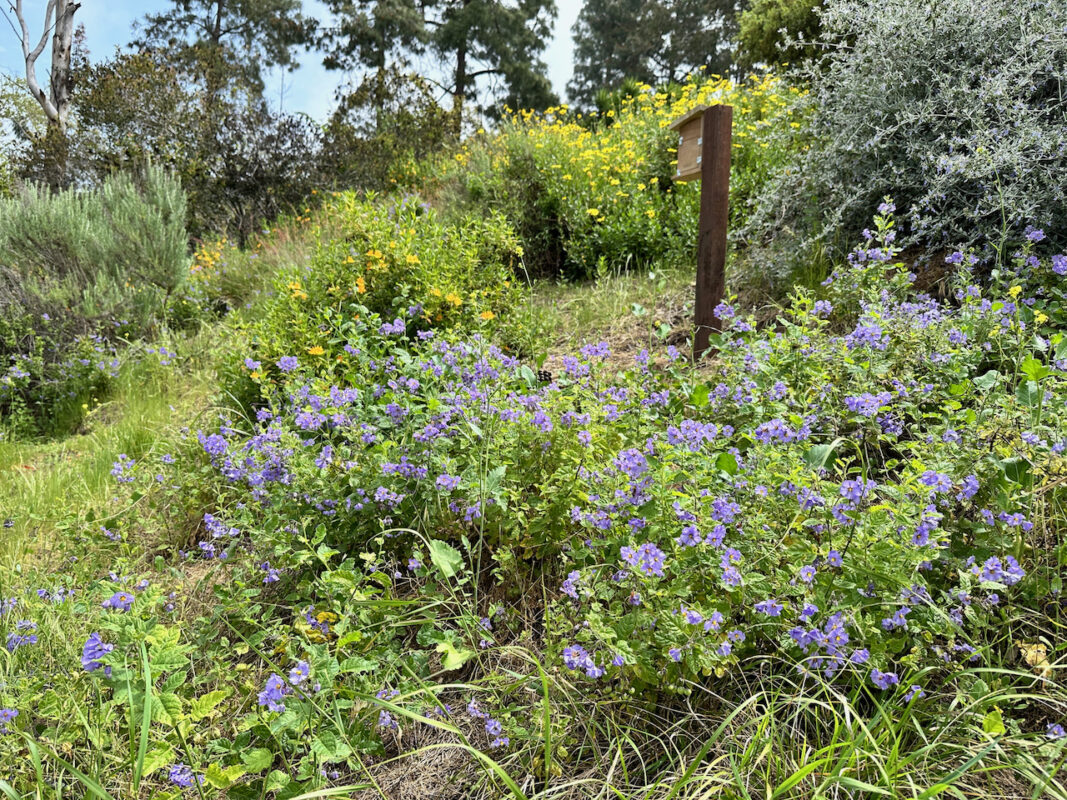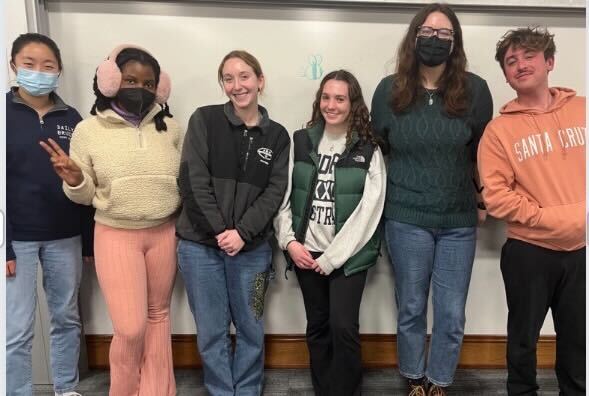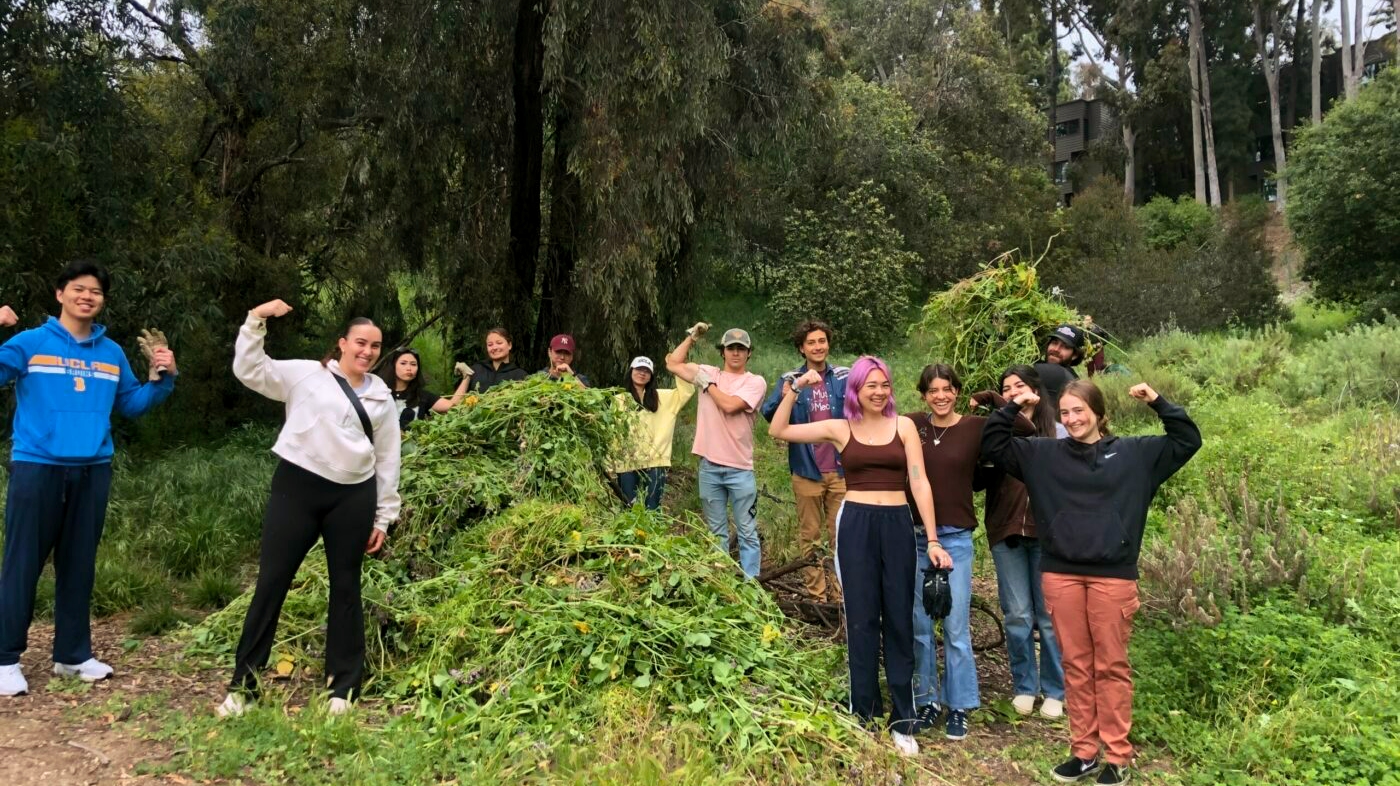Native pollinators contribute to ecosystem diversity by spreading pollen as they travel from plant to plant, increasing flower and plant populations and therefore encouraging species diversity. Since pollinators are such a key component of stable, diverse natural ecosystems, our research focuses on native bee species. We are researching native bees on UCLA’s campus by dividing the campus into quadrants and identifying native bee populations and their habitats. Our deliverables will include a native plant and native bees guide, a final presentation, and best practices for landscaping maintenance which will be given to groundskeeping staff in hopes of protecting and potentially increasing native bees on campus.
There is no current research on native bee populations specifically at UCLA, but UC Davis and UC Berkeley both conducted research on numbers of native bee species and population size. Even though a student organization, Bruin Beekeepers, currently works with honeybee populations on campus, no SAR team has attempted to conduct research in this area.
Currently, there are several UC-wide policies that regulate pesticide usage, which in turn help native bee populations. The use of highly toxic materials are banned for pest management, and the use of glyphosate is prohibited until each UC school, including UCLA, develops an acceptable Integrated Pest Management (IPM) plan. UC president Janet Napolitano also seeks to implement software tracking pesticide usage. Our project will increase knowledge and presence of native bees on campus by identifying habitats, providing instructional handouts, and delivering our data to groundskeeping to offer a suggestion on how to cater to native species. By increasing bee presence, this will in turn support diversity of plant and bee species, which leads to a stronger ecosystem overall.
Stakeholder: Bonny Bentzin, UCLA Deputy Chief Sustainability Officer
Team Leaders: Brooke Borders, Ogechi Hubert
Team Members: Juliet Hagar, Catherine Hu, Grace Miller, Ryan Shelburne




 />
/>